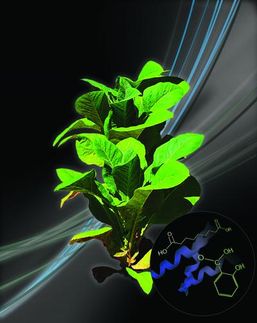Caffeine appears to be beneficial in males - but not females - with Lou Gehrig's disease
Advertisement
amyotrophic lateral sclerosis (ALS) is a fatal disease that damages key neurons in the brain and spinal cord. The disease causes progressive paralysis of voluntary muscles and often death within five years of symptoms. Although ALS (Lou Gehrig's disease) was discovered over a century ago, neither the cause nor a cure have been found, but several mechanisms seem to play a role in its development, including oxidative stress.
Researchers agree that ALS is a multifactorial disease that involves a complex interplay between a genetic predisposition and environmental factors. One environmental factor is diet. With oxidative stress a common concern in ALS pathology, it is worth examining what role antioxidants might play.
Antioxidants are found in commonly consumed beverages and foods. Coffee in particular has received attention as a potent dietary antioxidant. It is worth noting that coffee has significantly more antioxidant capacity than cocoa and green, black or herbal teas. However, coffee contains several components, the largest of which are caffeine and chlorogenic acid, a dietary polyphenol that is beneficial to the immune system. Previous studies have shown positive effects with coffee, caffeine, or chlorogenic acid supplementation in improving oxidative stress and its associated cell death mechanisms.
A new study investigates the role of dietary intervention focused on an antioxidant popular in diets worldwide-coffee. The researchers examined the effect of coffee, caffeine and chlorogenic acid supplementation on markers of oxidative stress, antioxidant enzyme protein content and cell death in male and female mice models of ALS.
Fifty-one G93A mice were randomly divided into eight groups: control (6 males, 8 females), coffee (5 males, 7 females), caffeine (5 males, 8 females), chlrogenic acid (5 males, 7 females). The control groups were fed a standard rodent diet and were not given any additional supplements. The intervention groups were provided with coffee, caffeine, and chlorogenic acid extracts, respectively, in amounts found in 5-10 cups of coffee per day, controlled for body weight.
At the end of the study, the researchers found that:
In males:
Coffee: increased food intake by 21%, decreased markers of oxidative stress by 39-65%, increased markers of antioxidant enzyme protein content by 46-139%, and decreased markers of cell death by 34-36%. Caffeine: increased food intake by 22%, decreased markers of oxidative stress by 45-81%, increased markers of antioxidant enzyme protein content by 21-99%, and decreased markers of cell death by 17-22%. Chlorogenic acid: increased food intake by 12%, decreased markers of oxidative stress by 25-35%, increased markers of antioxidant enzyme proteins by 23-44%, and decreased cell death by 41-44%.
In females:
Coffee: increased food intake by 30%, decreased markers of oxidative stress by 64%, but did not increase markers of antioxidant enzymes or decrease markers of cell death. Caffeine: increased food intake by 28%, decreased motor performance by 20%, decreased markers of oxidative stress by 58%, decreased markers of antioxidant enzyme protein content by 11-48%, and increased cell death by 23-74%. Chlorogenic acid: increased markers of oxidative stress by 178%, had equivocal effects on markers of antioxidant enzyme protein content, and decreased cell death 33-39%.
Conclusion
According to Ms. Seevaratnam, "If we were to extrapolate these results to human patients with ALS, then coffee appears to be beneficial for men, both reducing oxidative stress and cell death, and increasing antioxidants. But for women, caffeine appears to be harmful. Women with the disorder may want to restrict caffeine consumption, or switch to decaffeinated products which contain the antioxidants, but with little caffeine."
Original publication: Rajini Seevaratnam, Mazen J. Hamadeh, Sandeep Raha, Mark A. Tarnopolsky; "The study, entitled Caffeine Reduces Motor Performance and Antioxidant Enzyme Capacity in the Brain of Female G93A Mice, An Animal Model of Amyotrophic Lateral Sclerosis (ALS)"






















































